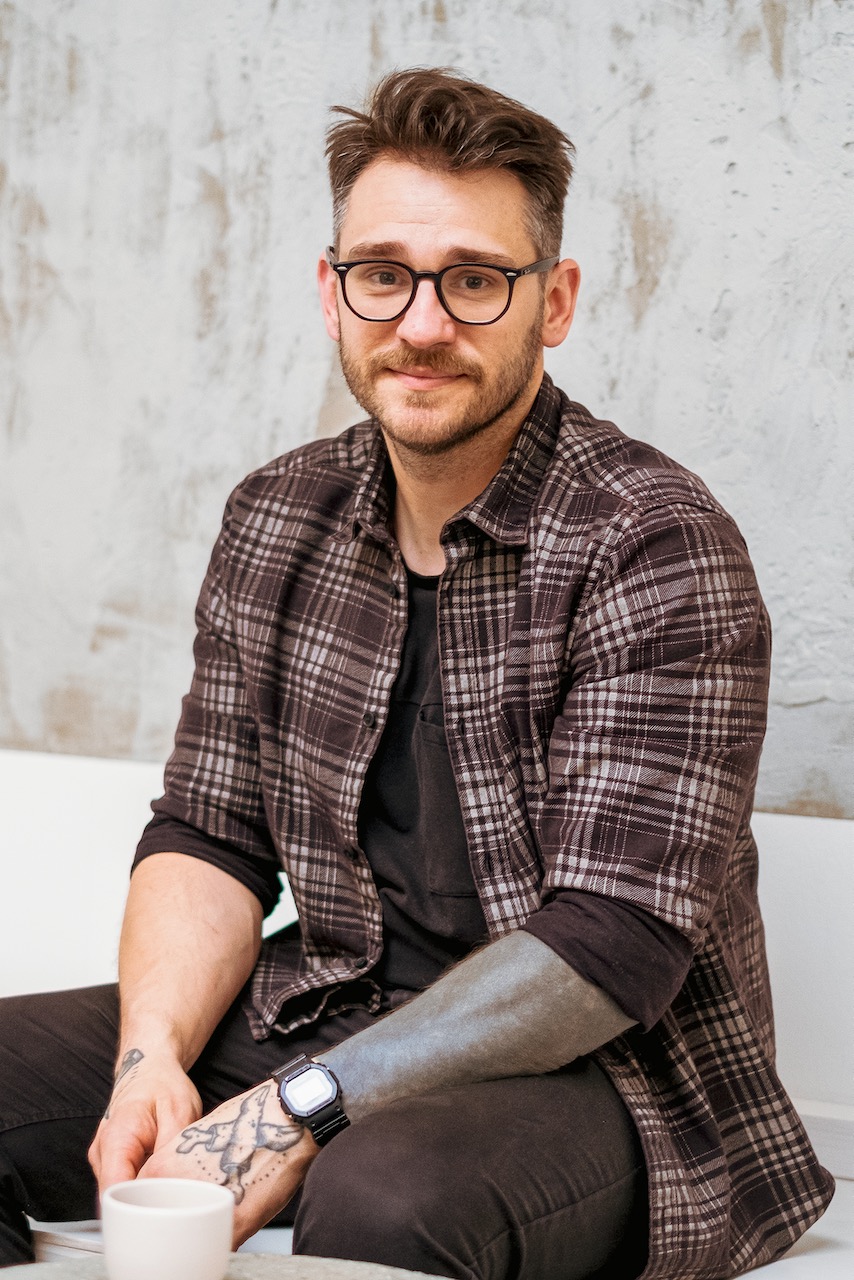
Growing without Pain: Making Division-Free World through Coffee
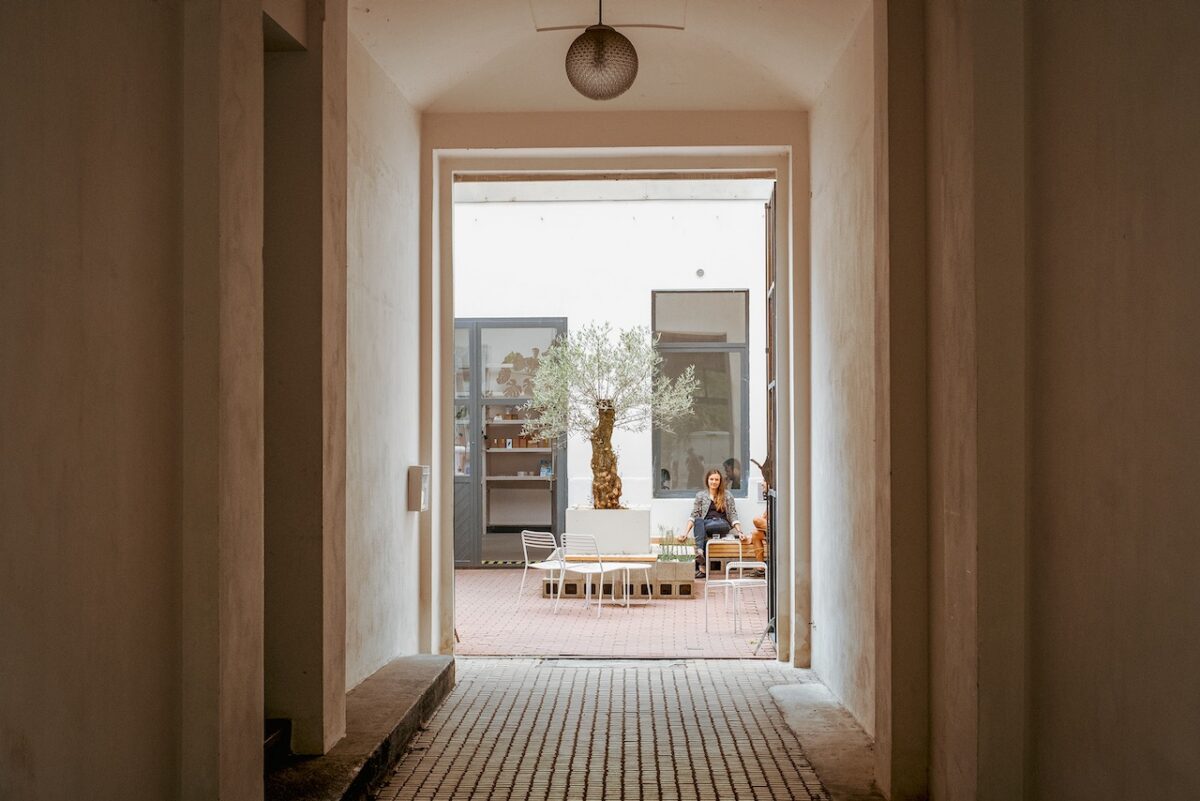
Rusty Nails Coffee Roasters runs a roastery in a residential district in the Czech city of Prague. Central to its business is wholesale for cafes and restaurants. The company also operates e-commerce for consumers and a small espresso bar called “Grounds”, built inside the roastery.
The man behind Rusty Nails is René Královič, a native of Slovakia who co-founded the company with a friend. René, who stepped into the world of coffee after working as a flight attendant, is “never going to get enough of it,” he says. Through interviews, we tried to find out what coffee means to him – and what he wants to achieve through coffee.
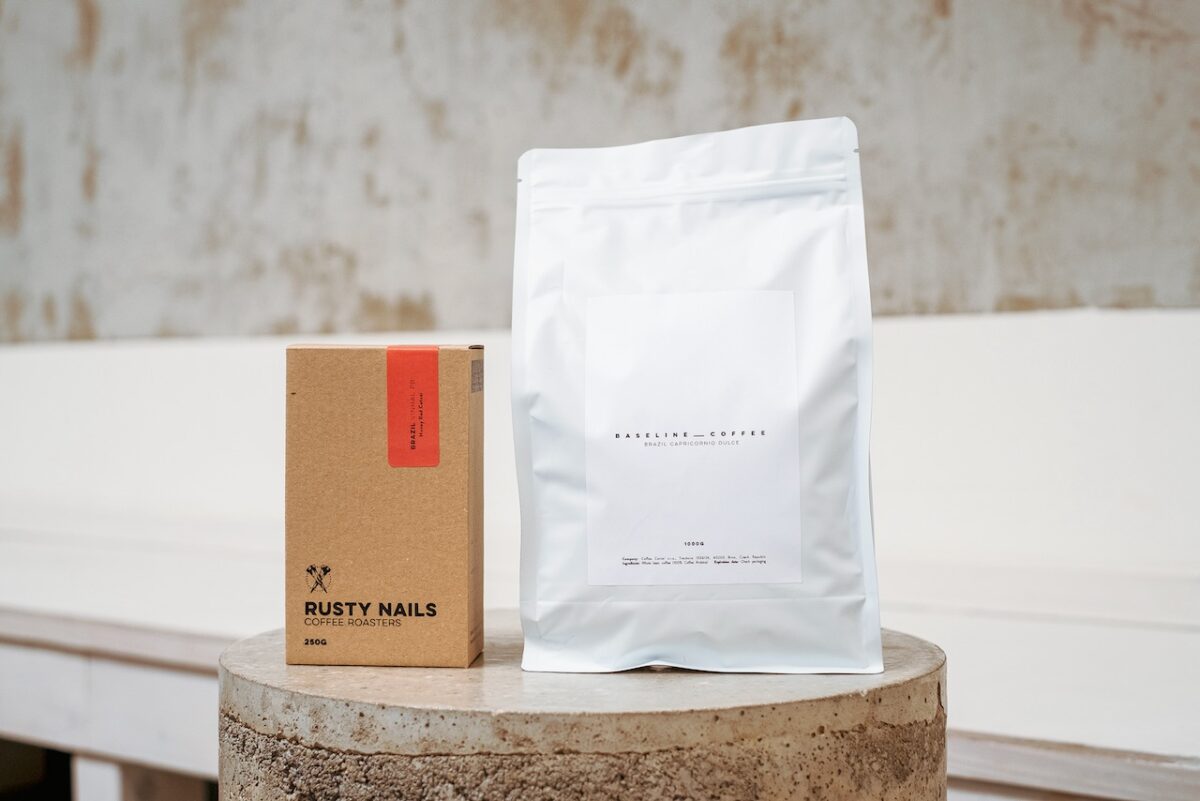
Attitude matters
From simple, almost bland packaging design to SNS posts that appear to lack any marketing calculation, Rusty Nails seems to be declaring it’s not interested in sprucing up its public image. If that’s indeed the company’s attitude, then it is a reflection of René’s philosophy.
“The specialty coffee industry is becoming highly competitive. But I don’t think it’s fair to trumpet how special or different you are. We do things our way, but there are also plenty of other great brands that are doing a great job.”
Rusty Nails will soon mark the seventh anniversary of its foundation. But it has never done active sales or employed a salesperson. Relationships with all its wholesale clients started thanks to word of mouth and event participation.
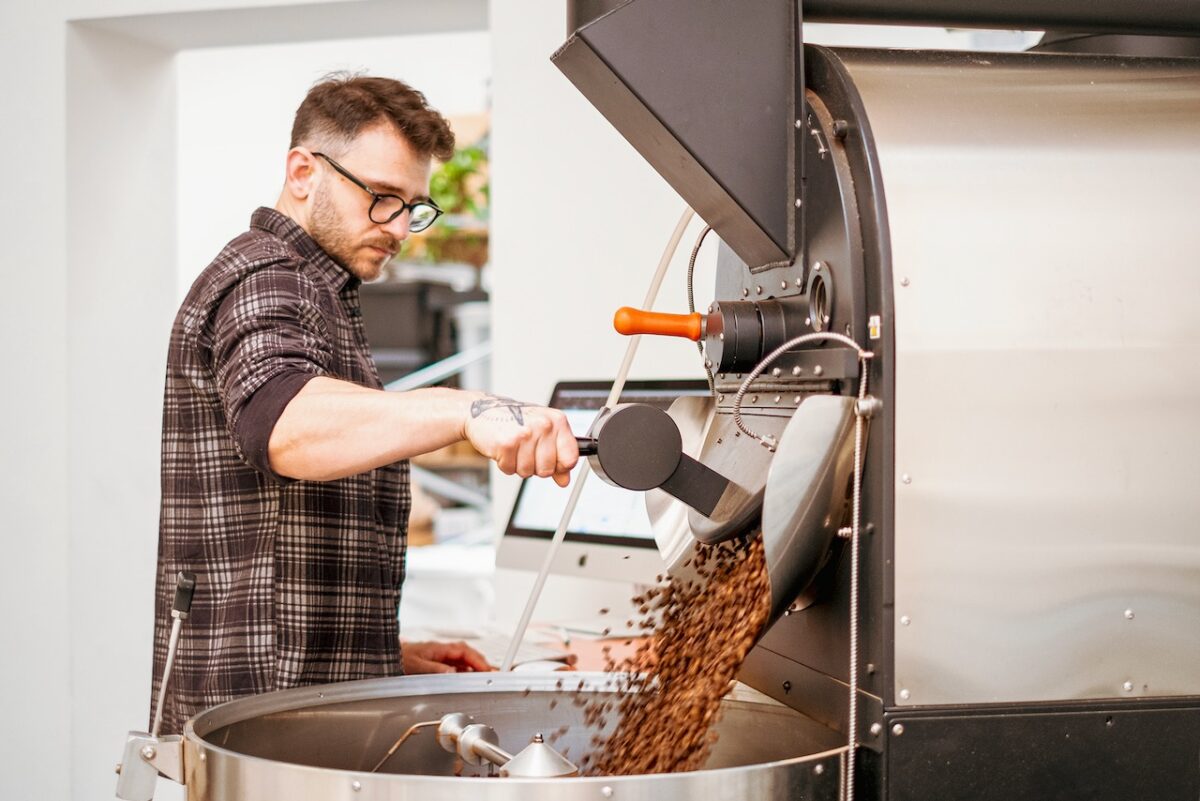
“All this time, we’ve tried to make our best effort to improve the quality of our products and customer service. If we find customers as a result, then we are lucky. I think it’s easier to build relationships and connect with customers at a deeper level if they find us themselves.
For us, that’s natural, sustainable growth. Our sales haven’t skyrocketed, but steadily increased year on year. Even in the middle of the pandemic in 2020, we sustained the same figure thanks in part to new wholesale connections. We were already back to the plus in 2021.”
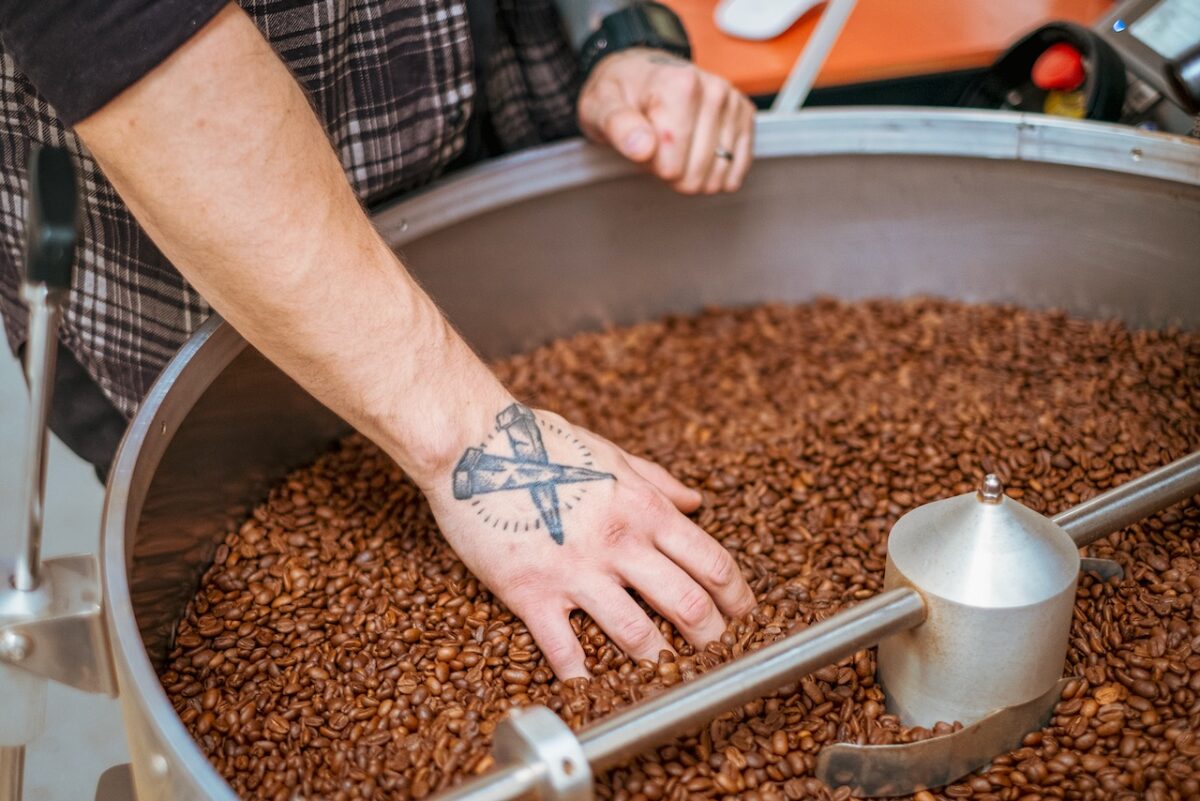
Rusty Nails places wholesale at its core because it sees volume as its top priority.
“Retail and e-commerce may turn a profit more easily. But wholesale is the most effective in building partnerships with producers because of the volume we can buy. Even if we know a crop is not going to be so good in a certain year, we continue to buy from the same producers every year. Once I set a price, we’ll do what we can to stick with it.
If a coffee isn’t up to our standards, we cut the selling price rather than lowering the buying price. To even it out, we increase a margin on other high-quality coffees. We make sure that producers won’t be the ones to bear the brunt because it is natural for quality to vary between different years.”
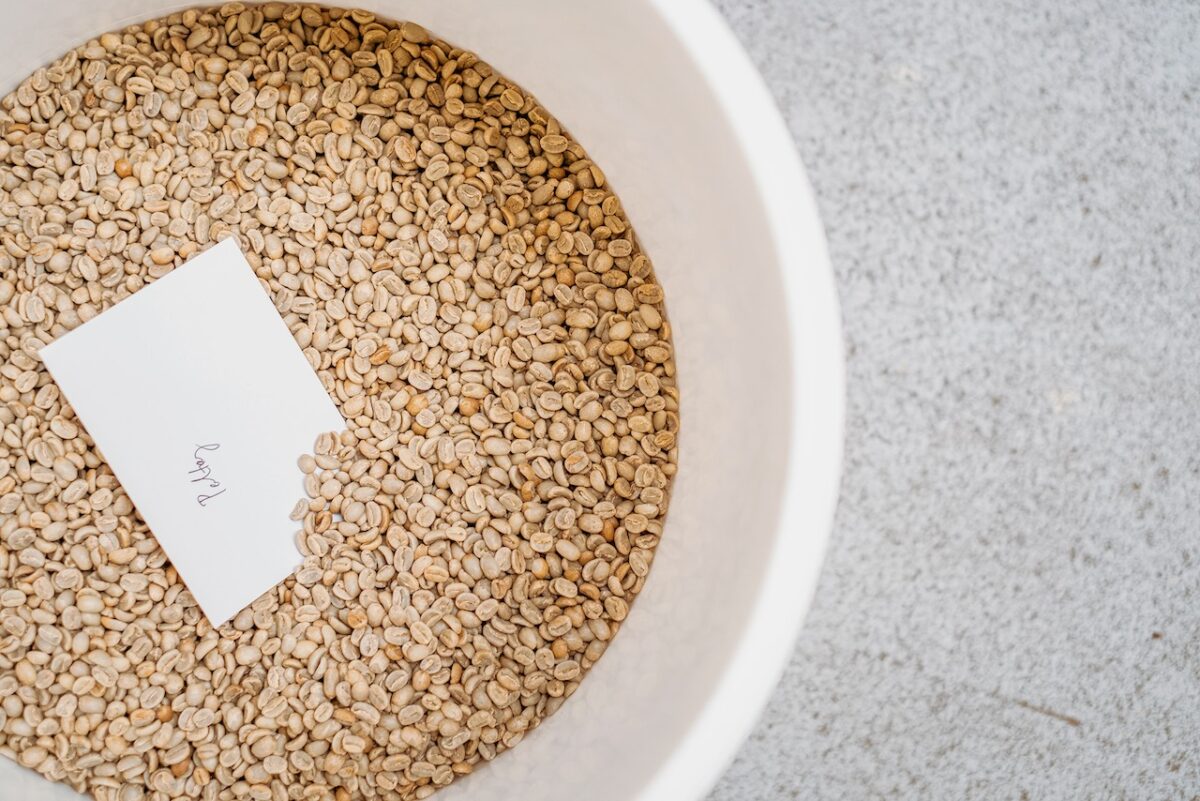
Still, Rusty Nails has a principle: to offer coffee with a cupping score of 85 and higher. In 2021, though, René officially launched a second line named “Baseline Coffee” and started to buy sub-85 coffees for the new brand as long as they are specialty grade.
“That way, we can buy more volume from partner producers and build stronger partnerships. It may be an honor to be called the world’s best roaster. But it could also add pressure. If I focus too much on offering the highest-quality coffee all the time to remain the world’s best roaster, relationships with producers won’t be sustainable. A cupping score is just one aspect of coffee. Ditching producers just because their coffees score low is not ‘specialty’ at all.”


Coffee isn’t black and white
Since its early days, Rusty Nails has been doing business with green coffee suppliers like This Side Up in the Netherlands and Norway-based Nordic Approach. With an emphasis on transparency, This Side Up discloses a breakdown of selling prices and sticks with producers through thick and thin. Practices like these by This Side Up founder Lennart Clerkx and other industry forerunners have been an example for René.
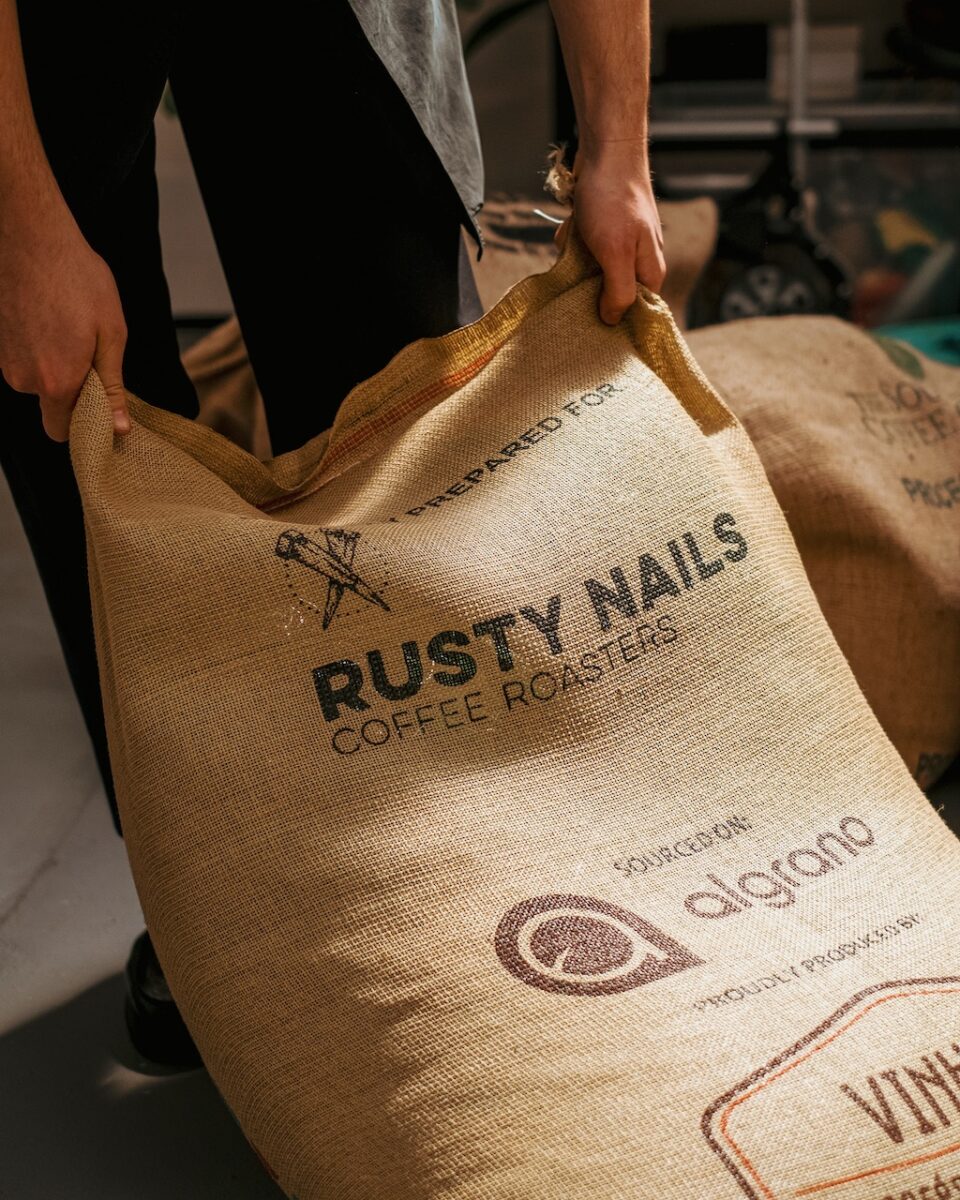
“I remember one thing Alec Oyhenart, a sales manager at Nordic Approach, told me. He said, ‘Coffee is not black and white. There are so many shades of gray in between.’ Some people involved in specialty coffee say Starbucks is terrible. But in fact, the company funds projects to build washing stations in Rwanda to support small-holder farmers and sources most of the coffees processed there.
Small roasters and large companies do not belong in two separate worlds. Rather, we are living and working alongside each other in a way. It’s easy to blame someone. But when you learn more information, it can change your perspective. That’s why I explain to people whenever I have the chance that the coffee they are drinking now or we source might be possible thanks to bigger brands.
Realistically, you’ll always find some low-quality beans among the green coffees produced by specialty producers. But such coffees need a buyer, too. So there is always going to be a commodity market for lower-grade coffee for canned coffee and instants. I think it’s necessary to accept the coffee industry as it is.”
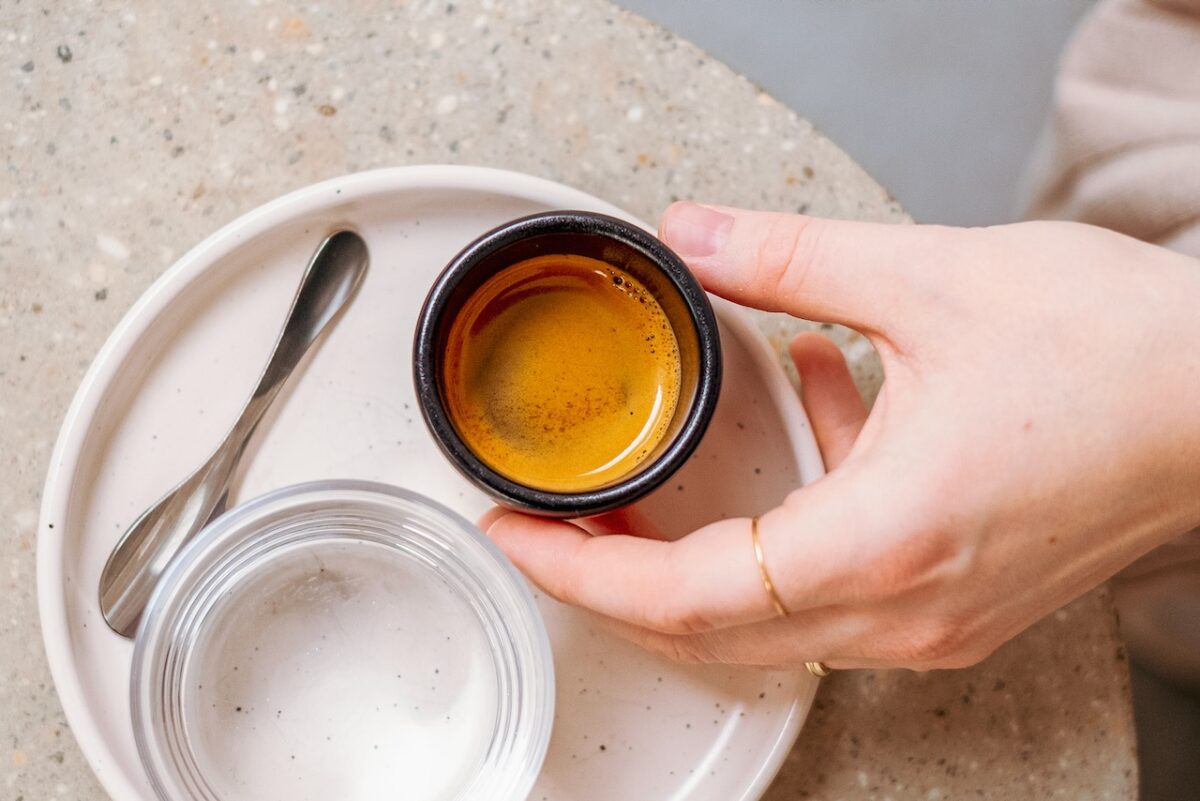
There is no turning back
Growing up in a small village in western Czech Slovakia (present-day Slovakia), René was first introduced to the world of coffee by his father. Enchanted by Italian culture, his father bought coffee from Italy and used it at his coffee shops and restaurants. For René, his first ever coffee was robust, bitter coffee characteristic of Italy.
“I couldn’t taste a huge difference between coffees because everything was dark-roasted. But that was because Italian brands aim for a standardized taste that stays the same year-round.”
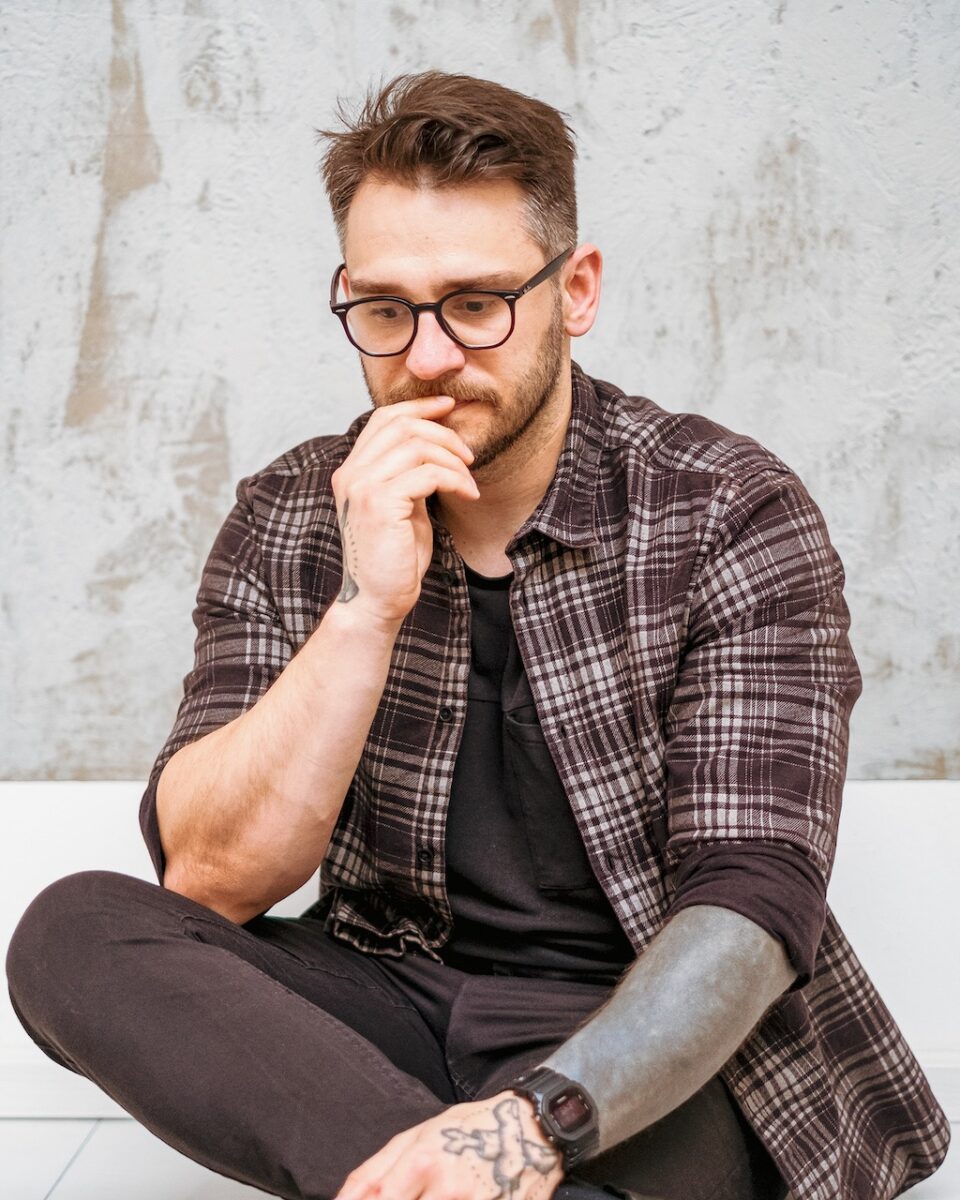
After René became a flight attendant at 19 years old, his work took him across borders. His curious soul was most stimulated by the world of coffee, where he found out each coffee has a taste of its own. Soon, he became certain that he could find more diversity in the tastes of coffee.
“Through specialty coffee, I learned about the real taste of coffees that’s unique to their terroir. Once my palate became accustomed to higher-quality coffees, there was no turning back.”
An encounter with Peter, whom René met when he was 20, set him firmly on a path toward a destined future. By that point, René was already well-acquainted with the hospitality industry. This background made him an ideal partner for Peter, who was dreaming of opening a special coffee shop in the second largest Czech city of Brno. Peter wasted no time in asking René for help with his project.
The proposal was a welcome one for René, too, who was just being drawn into coffee roasting. René, after accepting Peter’s invitation, went on to open the roastery SKØG Urban Hub with Peter. In October 2015, the pair founded Rusty Nails to expand into wholesale for other cafes and restaurants.

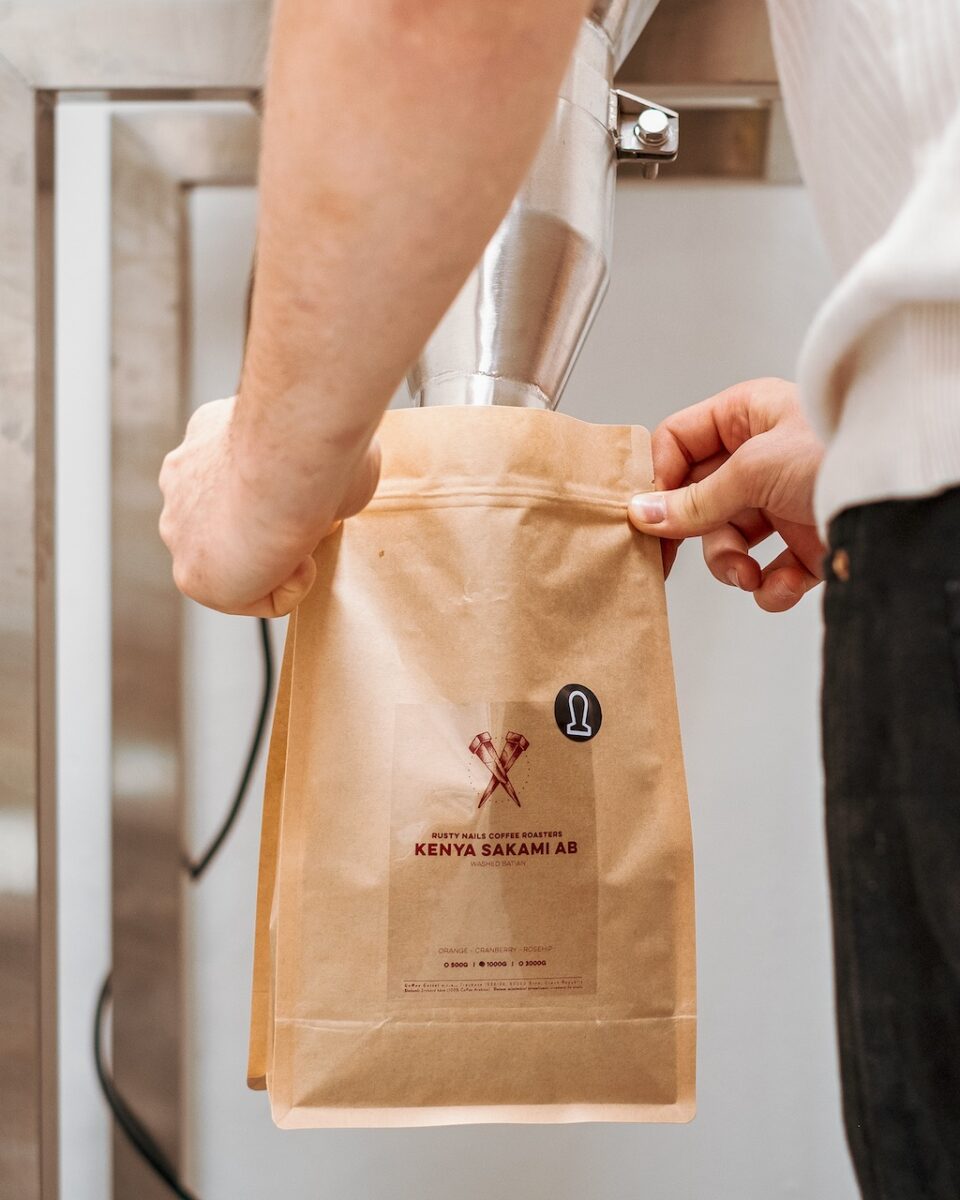
Need for downsizing
With their confidence boosted by the success of SKØG Urban Hub, Peter and René opened a coffee stand called Typika coffee in Prague. From the start of their first venture, they designed store operations in a way that could be adapted to other locations and other scales. So opening a second shop turned out to be smooth sailing.
When they started to consider a third Typica coffee in Warsaw, Poland, however, a sense of gloom was hanging over René, in stark contrast to his growing business.
“We had up to 50 people in our workforce, including part-timers. We were growing too big, too fast. I didn’t even recognize who the people were behind the bar. There were so many managers and teams that I started to feel detached from the business. I couldn’t bear that anymore.”
René had a choice: either he would step away from the business or scale it down to just how big he wanted it to be. But downsizing didn’t seem a realistic option, considering his obligations to the lives of his staff. After talks with Peter, they decided to split the company, with René taking over the roastery and Peter carrying on with the cafe.
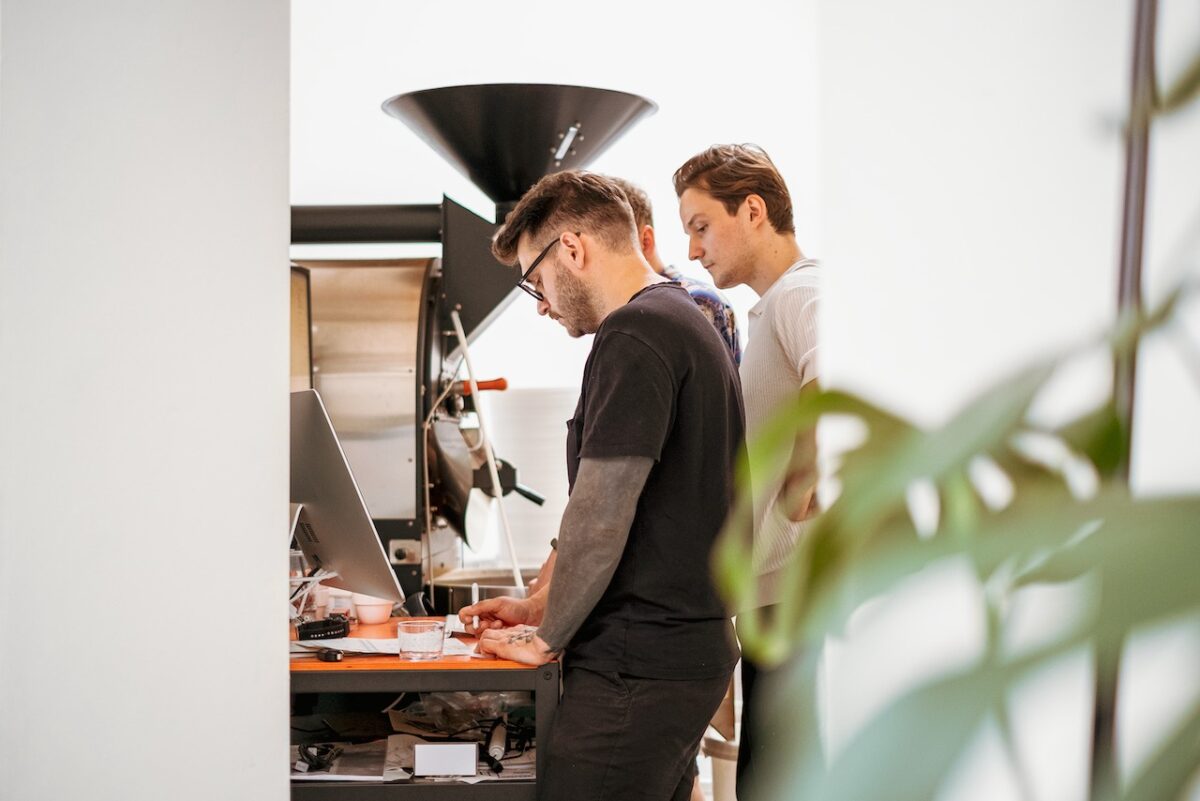
About three years on, five members, including René, are now leading Rusty Nails on its new journey.
“We are all professionals who are driven to stay in coffee. One thing I like about having a smaller team is being able to interview job applicants myself. For me, Rusty Nails is a life brand, something I want to continue all my life. So I want to have a deep connection with the people inside it, too. By the way, we still do business with Peter’s company. We maintain a good relationship.
I don’t mind standing behind a roaster for 12 hours. I like the challenge to make every roast on point, to be in the zone and dialed in. I get excited whenever I receive new harvests and get to roast new coffees.”
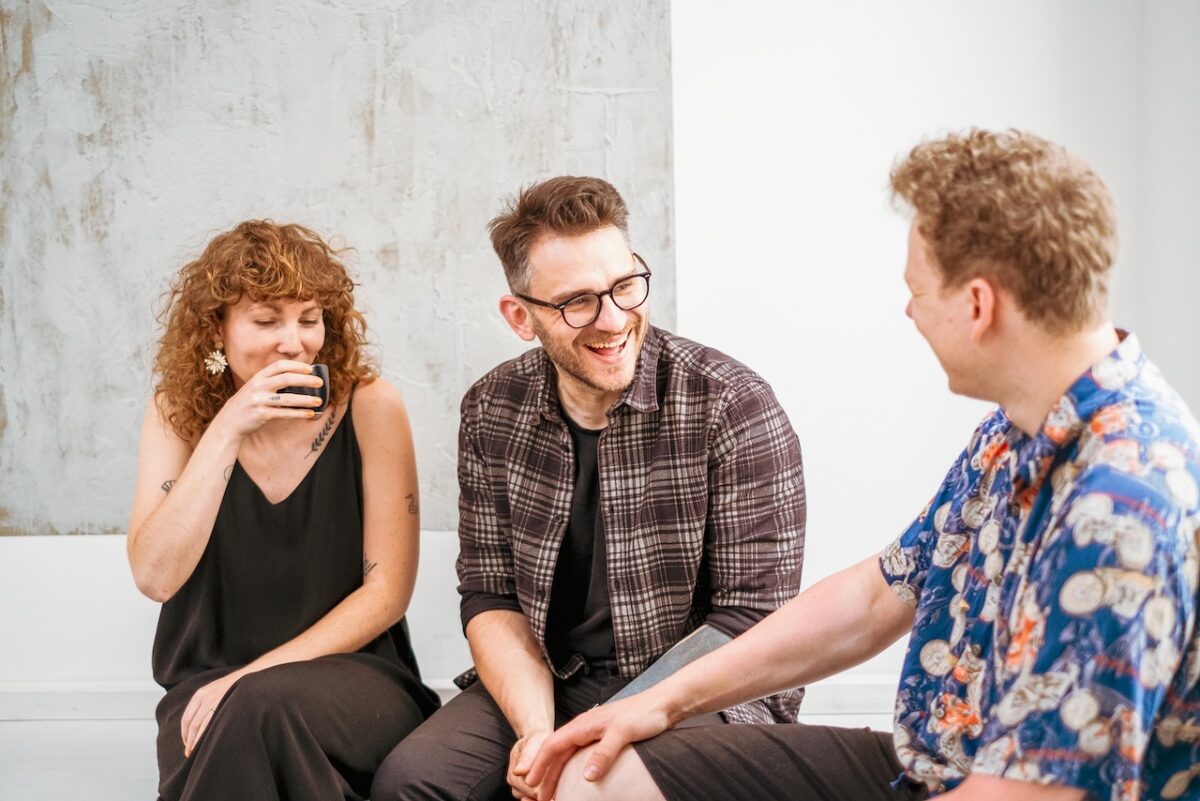
Though René had to divide up Rusty Nails because of its rapid growth and the painful consequences it brought with it, he is intent on more than just maintaining the status-quo today. Eyeing gradual expansion, he is now gearing up to open a small coffee shop under the Rusty Nails brand. René says he plans to hire two to three new members while trying to preserve the family-like atmosphere and keep the team easy to manage.
“Even though we’ve grown steadily over the years, our presence is still minimal. So we want to ramp up our scale. If we want to have a greater impact on origins, we need to increase volume, after all. But at the same time, growth has to come at a natural, sustainable pace that won’t be painful.”

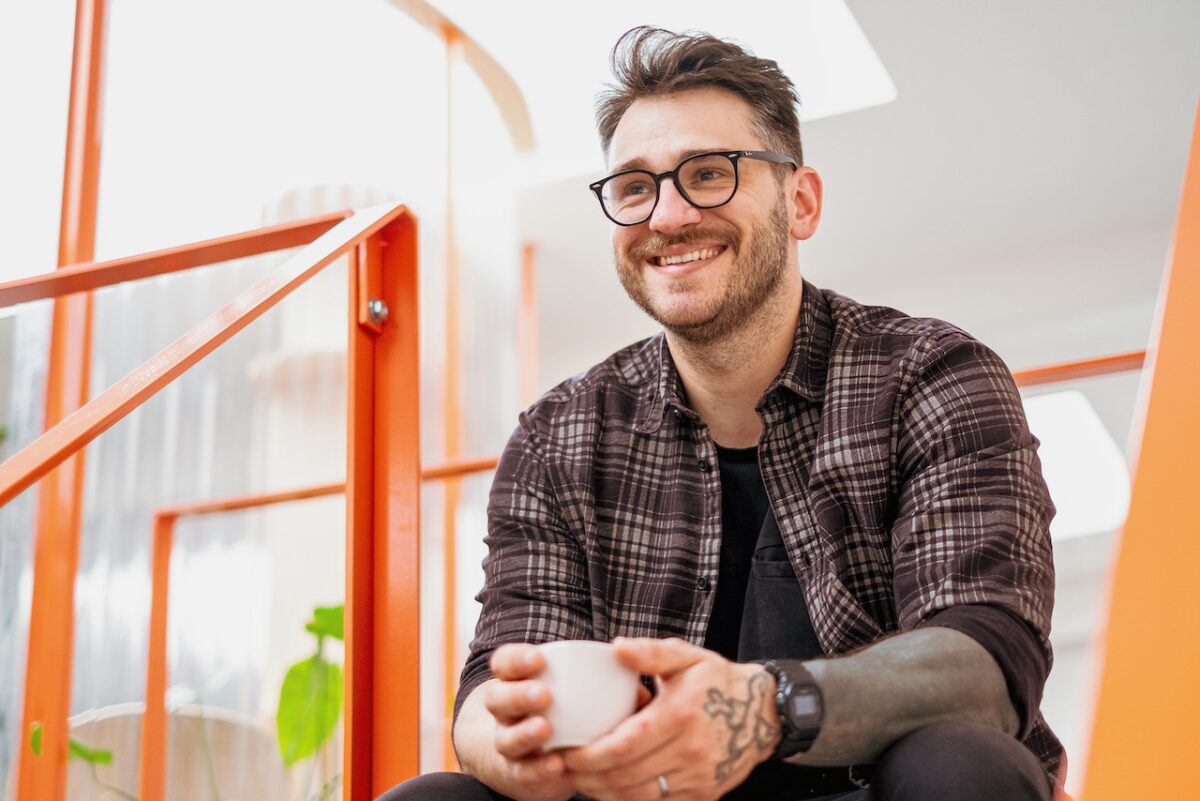
Coffee as common language
René spent his childhood in a small Slovakian village. Enjoying Japanese anime and manga was one of his favorite pastimes. He was born in 1988. The internet was already around when he was in his teens. But since his access to information was limited, it wasn’t too often that he got to experience different cultures.
René enrolled in a university near his hometown after high school. But life on campus didn’t seem like “the right fit,” René recalls. After six months, he decided to put his studies on hold and moved to Dublin, Ireland, where he had his horizons broadened and eventually started working as a flight attendant. The job gave him a life constantly on the move – one that was more exciting than ever.
“While on the job, I often flew to the Middle East. My first trips to Thailand, Malaysia and Indonesia were among the most memorable of all. It was amazing to see how South East Asia had cultures totally different from Europe’s. I was able to expand my comfort zone through those experiences.”
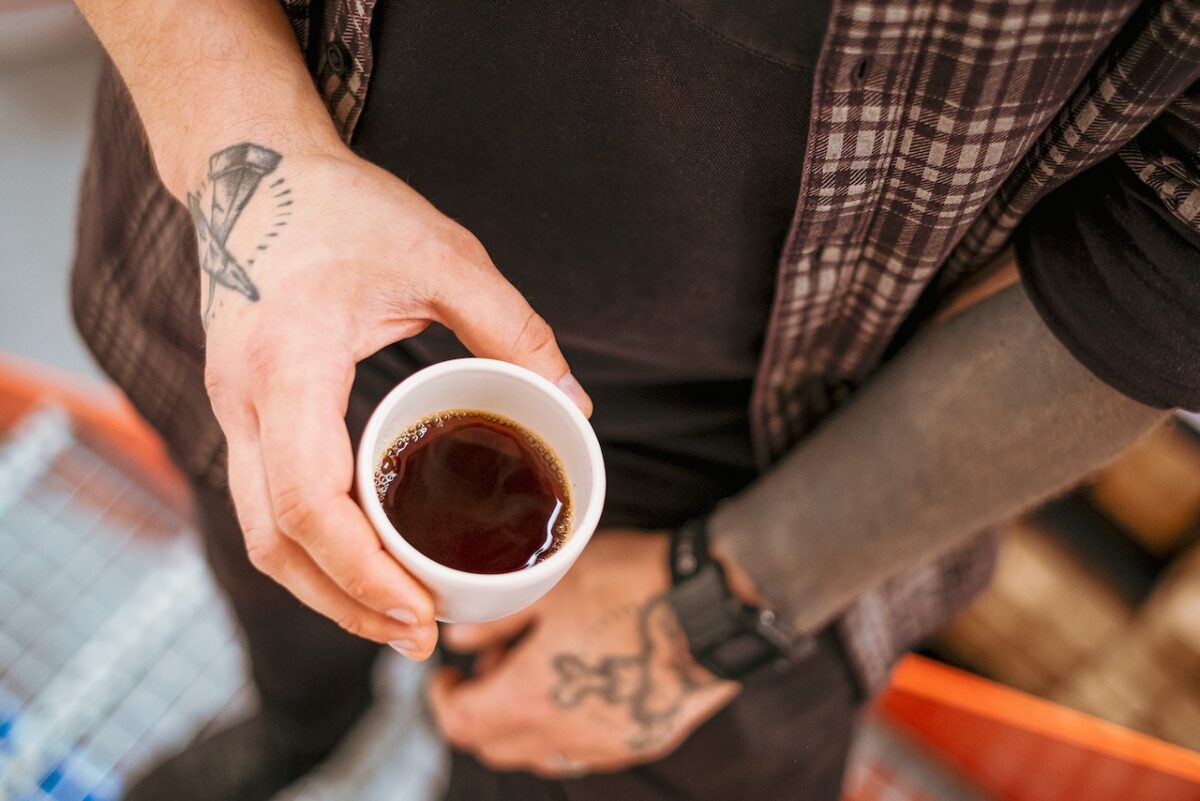
If traveling is about acquainting yourself with the foreign and unfamiliar, then exploring the world of coffee is also traveling in its own right. But traveling is just a means to an end for René. He will always set his sights on his next journey — to go somewhere far yet feel something close to his heart.
“Wherever I go in the world, coffee is a common language. Whether in Kuala Lumpur, Jakarta or Cape Town, if I stop by a specialty coffee shop, conversation starts with baristas through coffee. I get to feel a connection with them in an instant. Even before I introduce myself, they realize I am no ordinary consumer, seeing how I drink and order my coffee.
It’s amazing to be able to make an instant connection with people you have never met thanks to coffee and feel like you are part of a global community. I’m sure this is all because of the special power coffee has.”
Originally written in Japanese by Tatsuya Nakamichi
MY FAVORITE COFFEE
Nowadays, we have so many coffees made with crazy processing methods. It almost seems that things are getting out of hand. It’s always interesting to drink those coffees to expand my palate and see how they taste. But I always come back to washed. That’s because washed has the taste of the terroir, the taste of the origin. Maybe I’m old school.

Buy coffee beans from this roaster
Rusty Nails Coffee Roasters (Grounds)
- [Open]
- Tue~Sat 9:00~17:00